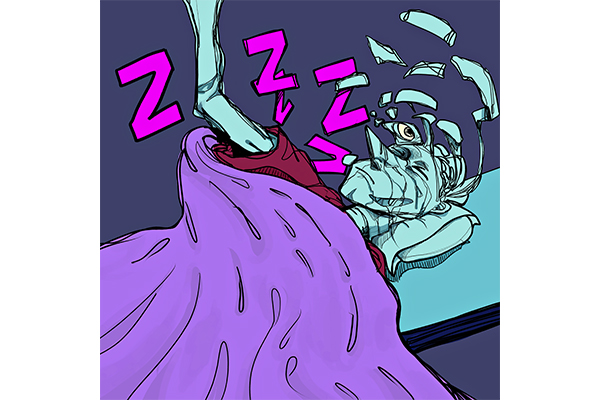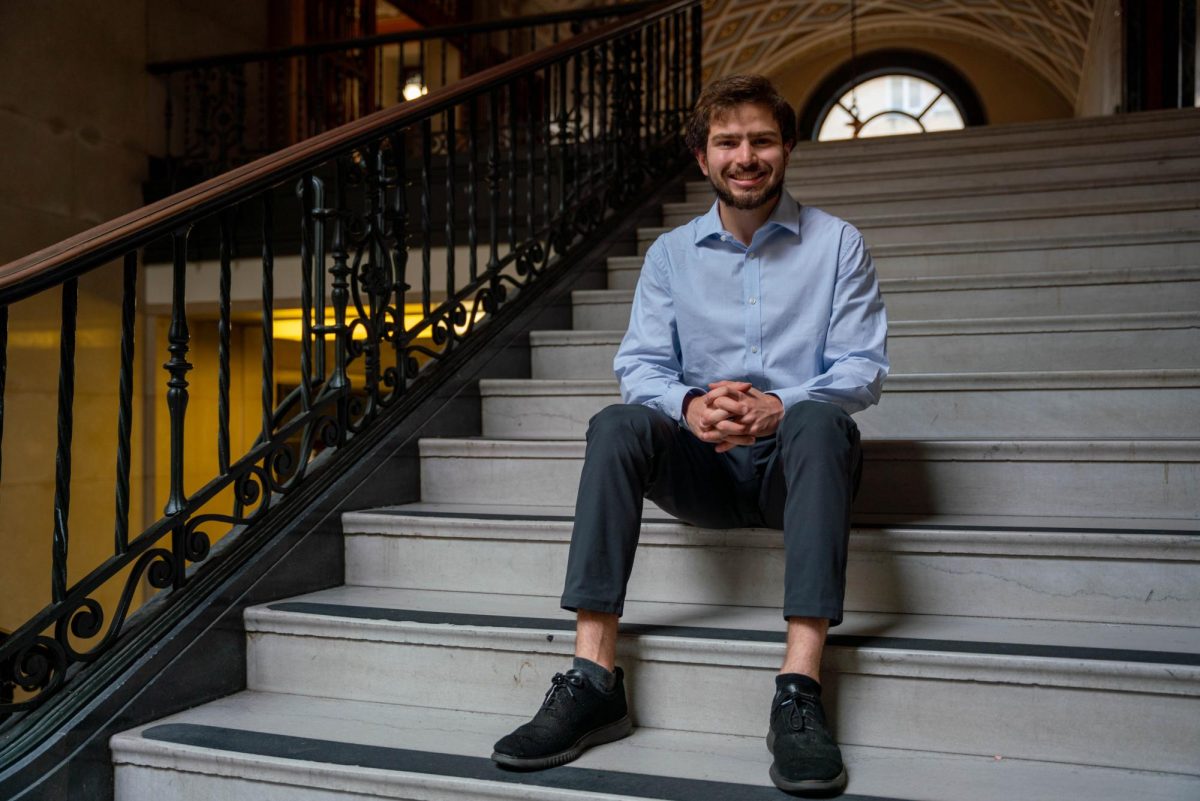It’s not uncommon for someone to wake up in the morning unable to move due to a condition called sleep paralysis, neurology professor William Schwartz said at a Dell Medical School talk last Tuesday morning.
Sleep is an actively generated process by the brain and not simply a passive withdrawal of waking function, Schwartz said. In his talk, Schwartz explored a variety of sleep dissociative behaviors such as sleep paralysis. He talked about both the well-understood ones and the enigmas.
Some of the more common sleep dissociative behaviors are a form of rapid eye movement, or REM, sleep disorder, Schwartz said.
“There are REM sleep disorders that involve the circuits responsible for the active inhibition of motor pathways,” Schwartz said. “When these circuits are activated abnormally during waking, there can be a temporary paralysis. When they are not activated normally during REM sleep, there can be an acting out of dreams.”
Sleep dissociative behavior impacts many people every day and is very common in students, Schwartz said.
“A lot of people suffer from primary insomnia,” Schwartz said. “If you put them in the lab and tested them, everything would look OK. Sleep dissociative behaviors are provoked or worsened by sleep deprivation. Genetics may play a roll, but stress, emotion and sleep deprivation can all trigger several sleep disorders like cataplexy or narcolepsy.”
Ragini Kondetimmanahalli, a mental health peer educator for the UT Counseling and Mental Health Center, said college students are often a very sleep-deprived population and have high levels of depression and anxiety.
“I have experienced sleep deprivation,” said Kondetimmanahalli, a biology and Plan II junior. “It’s definitely harder to pay attention, and I feel more irritable afterwards.”
Learning more about these types of sleep behaviors is good for health awareness, Schwartz said. For example, REM sleep behavior disorder is associated with later development of certain kinds of neurodegenerative diseases.
Sleep dissociative behaviors can also cause “deep problems” in our behavior, interactions where brain cognition is impaired and metabolic disorders such as diabetes, Schwartz said.
The talk allowed students to learn and better understand their own sleep behaviors, biology junior Sophia Shi said.
“Understanding more about sleep disorders may help students gain a better understanding of their own health and improve their day-to-day lives,” Shi said.





















